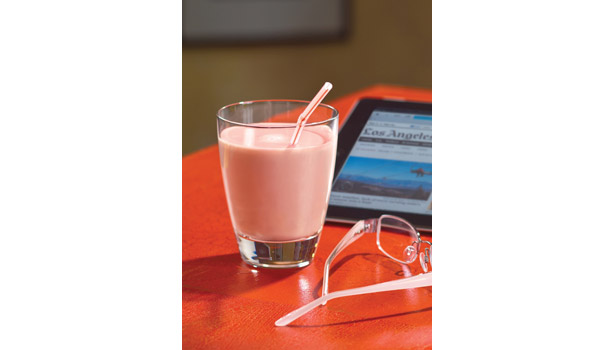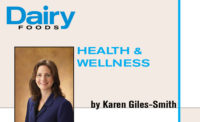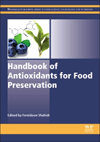New research about the body’s need for protein is revolutionizing protein intake recommendations and will quite possibly change the way Americans eat — creating an unprecedented opportunity for the development and marketing of protein-rich dairy foods and protein-fortified foods and beverages.
According to scientists and dairy industry insiders alike, protein is the next big thing in nutrition — in a positive way. Rather than a red flag, protein gets the green light: consuming adequate protein has many health benefits and may help prevent and treat several chronic diseases. And the definition of “adequate” is getting an upgrade.
Protein: More and better
A growing body of research suggests that people may need more protein than previously thought. What’s more, for optimal satiety benefits (a potential tool for weight management) and optimal muscle-building and maintenance, the body may need a substantial dose of protein periodically throughout the day. For example, for maximum results, preliminary research points to an intake of 25 to 30 grams of protein at each meal and about 20 to 25 grams of protein after resistance training.
Protein’s pedigree also is a consideration. High-quality, or complete, proteins are composed of all nine essential amino acids (those that the human body is unable to manufacture on its own) in proportions similar to amino acid requirements. Animal sources of protein are high-quality proteins and are more bio-available than plant proteins. According to experts, it is particularly important to include high-quality protein at each meal. Some studies indicate a blend of protein types (for example, dairy and soy proteins) may outperform single sources in terms of muscle protein synthesis; and that a balance of protein and carbohydrate is important for refueling after exercise.
Opportunities abound for protein in dairy foods
So, here’s the challenge — and the opportunity. Many consumers are searching for convenient, tasty, protein-rich foods and beverages to amp up their intake. Getting 25 to 30 grams of protein at each meal isn’t easy, especially at breakfast. Case in point: My breakfast of choice (oatmeal made with milk, topped with walnuts and dried cherries, and washed down with 2 to 3 cups of milk-laced coffee) comes in at about 18 grams of protein. I know I’m not the only one experiencing a protein deficit from the get-go each day. A wide variety of protein-rich, ready-to-eat and easy-to-prepare foods and beverages (extra points for portability) on grocery store shelves would solve this everyday dilemma. The dairy industry can deliver.
When making a change, awareness is the critical first step. Many Americans are aware of the health benefits of protein (88% know protein helps build muscle, 60% agree protein can help people feel full, and 60% believe a high-protein diet can aid weight loss per IFIC’s 2012 Food & Health Survey). However, few are aware that dairy has an exceptional protein profile. According to The Innovation Center for U.S. Dairy, current consumer awareness levels of protein are: 16% for cheese, 13% for milk, and 12% for yogurt.
It is time to tout dairy’s protein power. The groundwork has been laid: The Innovation Center for U.S. Dairy notes that dairy foods have high credibility and consumer trust as a rich source of “good for you” nutrients.
Marketers have done an admirable job of emphasizing yogurt’s protein prowess, as have a number of specialty beverage categories. Many new products have plugged their higher protein content and, in general, higher-protein products are doing well in the marketplace, according to The Innovation Center for U.S. Dairy.
“Demand for dairy proteins will continue to rise,” said Jill Rippe, director of research and development, Agropur Ingredients, La Crosse, Wis. “It’s possible to increase the protein levels in many dairy foods to contain twice as much protein. It’s been done with yogurt, dairy-based drinks, frozen desserts and dips. It could be done with puddings, soft spreads and many foods beyond dairy.”
Fortify with the familiar
The original proponents of protein were bodybuilders and super-athletes, said Gwen Bargetzi, marketing director, Hilmar Ingredients, Calif. “That changed once dairy protein’s benefits became more widely recognized. Savvy manufacturers began offering protein-fortified versions of everyday foods.”
“Dairy protein is an ingredient that provides a bridge between supplements and foods,” noted Bargetzi. “You can supplement your morning smoothie with a scoop of whey protein and you can have a bowl of protein-fortified chicken soup.”
There’s one sticking point with fortifying dairy foods with dairy protein ingredients, Rippe noted. “The standards of identity for dairy foods don’t allow protein fortification, so we’re seeing non-standard products with names like ‘dairy drink’ instead of ‘dairy-protein fortified milk.’ We need to be careful and consistent with our message to consumers that enhanced dairy protein in dairy products is a positive nutritional benefit.”
Protein Fortification
How dairy distinguishes itself from competitors
- Versatile. Excellent flavor profile and unique functionalities allow use in a wide variety of applications. Dairy proteins’ composition can be customized. Dairy proteins can perform functions of foaming, gelling, emulsification and more.
- Multitalented. Extrusion research on whey and milk proteins developed unique ingredients for bars, snacks and even meat analogs.
- Heat stable. Continuing to improve heat stability of whey proteins for beverage applications.
Source: The Innovation Center for U.S. Dairy
For more information
The Dairy Foods’ Buyers Guide (see July 2013 or buyersguide.dairyfoods.com/buyersguide) identifies many dairy- and nondairy-protein ingredient manufacturers. Here are details on four:
ADM: Producer of Clarisoy isolated soy proteins that offer clarity and complete protein nutrition for beverage applications. Clarisoy 100 soy protein isolate enables 100%-soluble protein fortification in beverage applications under 4.0 pH. Clarisoy 150 soy protein isolate has a high solubility in higher pH ranges.
Agropur: Manufacturer of high-quality whey protein isolates using proprietary cold filtration process, which produces WPI with clarity, solubility and flavor.
Glanbia Nutritionals: Offers a series of proteins for nutritional bars and beverages, including protein solutions specific for acidic, intermediate and neutral pH beverages. Optisol 1000 whey protein concentrate provides many valuable functional characteristics compatible with diverse applications.
Hilmar Ingredients: Product line-up includes different protein levels, instantized proteins, hydrolyzed proteins, gelling proteins, whey proteins that remain clear in liquids, and specific fractions such as lactoferrin and alpha-lactalbumin.
Read more about dairy protein
Read the guest blog "Powering dairy growth with protein" by Geri Berdak, the Senior Vice President, Health and Wellness, at Dairy Management Inc., Rosemont, Ill.







